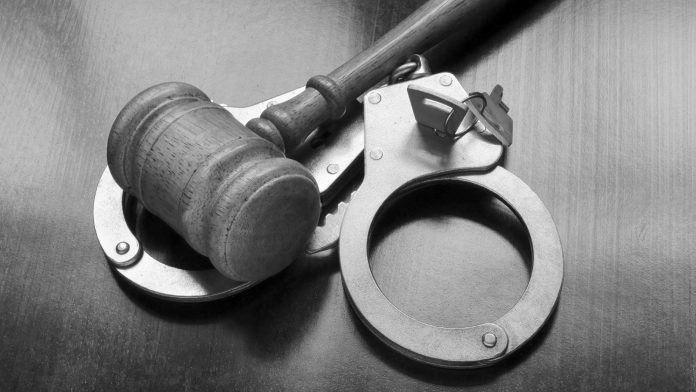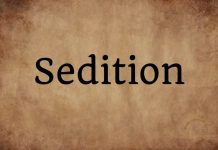This article is written by Ansruta Debnath, a student currently pursuing the BA LLB degree from National Law University Odisha. This article covers the Allahabad High Court order that granted bail to Sharjeel Imam, the various cases against him and the implications of granting bail in sedition cases.
Table of Contents
Introduction
Sharjeel Imam, a prominent figure of the protests organized against the Citizenship (Amendment) Act, 2019, was granted bail by the Allahabad High Court. Multiple cases have been lodged against him, under various provisions of the Indian Penal Code, 1860 and Unlawful Activities (Prevention) Act, 1967, the primary being Section 124A which penalizes sedition. This article is on the Allahabad High Court order granting bail and the various other cases against Imam. That is followed by a brief discussion on bail and the social implications of granting bail in cases of sedition.
Sharjeel Imam and his anti-CAA speeches
Sharjeel Imam was one of the most prominent organizers of the Shaheen Bagh protest against CAA 2019, which has been credited for inspiring hundreds of protests across the country. However, Imam went head-to-head with law enforcement agencies after giving a few incendiary speeches, especially the ones given in Aligarh Muslim University and Jamia Millia Islam.
After the videos of his speeches went viral in December of 2019 and January of 2020, Sharjeel Imam got charged with sedition and other charges in five states. He was on the run for three days after which he finally got arrested on the 28th of January, 2020 by Delhi Police from Jehanabad in Bihar.
The case before the Allahabad High Court was regarding Sharjeel Islam’s speech at Aligarh Muslim University. In that speech, Imam called for cutting off Assam from the rest of the country by blocking and occupying the “Muslim dominated Chicken’s Neck”. Chicken’s Neck is the very vital Siliguri Corridor that connects West Bengal (and the rest of the country) with the north-eastern part of India. Following that speech, cases were registered against him in Uttar Pradesh, Assam, Arunachal Pradesh and Manipur.
Imam got charged with sedition in Delhi for his 2019 speech in Jamia Millia Islam. The Delhi High Court, however, stated that on prima facie examination of his speech, the Court felt it was on communal lines. The Court thus denied his bail application.
Imam had filed a plea in the Supreme Court of India, requesting for the consolidation of all five cases. However, the Apex Court has refused to pass an interim order unless it has perused the counter-affidavits to Imam’s plea from all five states.
What has Imam been charged with
The preliminary Allahabad High Court Order summarised the charges that Sharjeel Imam has been facing in all the five states-
- Assam: Sections 121A, 124A, 153A, 153B of the Indian Penal Code, 1860 and Sections 13, 15A(iii), 18 of the Unlawful Activities (Prevention) Act, 1967.
- Uttar Pradesh: Sections 124A, 153A, 153B, 505(2) of the Indian Penal Code, 1860.
- Manipur: Sections 120B, 121, 121A, 124A, 153A of the Indian Penal Code, 1860.
- Delhi: Sections 124A, 153A, 505 of the Indian Penal Code, 1860 (Section 13 of Unlawful Activities (Prevention) Act, 1967 subsequently added).
- Arunachal Pradesh: Sections 124A, 153A, 153B of the Indian Penal Code, 1860.
Indian Penal Code, 1860
- Section 120(B): This Section punishes the act of criminal conspiracy as given in Section 120A of the Penal Code.
- Section 121: This Section describes and punishes the acts of waging war, attempting to wage war or abetting waging of such war.
- Section 121A: This Section punishes the criminal conspiracy to commit acts described in Section 121.
- Section 124A: Charges under this Section are present in all five states. This Section criminalises and punishes sedition. Sedition is defined as any act or publication which can incite hatred or promote disaffection against the Government of India as established by law. Disaffection has been explained as feelings of disloyalty or enmity.
- Section 153A: This Section discusses the offence of promoting enmity between different groups on grounds of religion, race, place of birth, residence, language, etc., and doing acts prejudicial to the maintenance of harmony.
- Section 153(B): The Section criminalises publication of imputations regarding any class of persons based on race, religion, language etc. which are prejudicial against national integration.
- Section 505: Statements made to induce public mischief i.e., statements that can incite a person to cause offences against the state has been punished through this section.
- Section 505(2): This Section talks about statements that create or promote enmity, hatred or ill-will between various classes of people.
Unlawful Activities (Prevention) Act, 1967
- Section 13: Section 13(1) of the Unlawful Activities (Prevention) Act, 1967 prescribes the punishment for unlawful activities. “Unlawful activities” have been described in Section 2(o) of the Act as any activity or publication which “disclaims, questions, disrupts or is intended to disrupt the sovereignty and territorial integrity of India” or induces disaffection against India. Moreover, it also includes activities by individuals or groups which try to bring the cession of a part of the territory of India or the secession of a part of the territory of India from the Union. Section 13(2) punishes assistance to an association or person to commit any unlawful activity.
- Section 15A(iii): This Section talks about the disruption of any supplies or services essential to the life of the community in India or any foreign country.
- Section 18: Section 18 punishes conspiracy to commit or preparation to commit any terrorist act.
Order by Allahabad High Court
Arguments
In the present case, as mentioned before, the bail applicant Sharjeel Imam was accused of offences under Sections 124A, 153A, 153B and 505(2) of the Indian Penal Code. The counsel for the applicant argued that ingredients of the offences have not been fulfilled since Imam had not urged the listeners of his speech to take up arms, engage in any violent act that can threaten the integrity and unity of the country or commit any act of hatred against any community.
Furthermore, it was argued that Imam’s speech had not had any effect on the listeners. It was said that after the Aligarh speech, which was given on the 16th of January, no incidents of violence as an effect of that speech had been registered. The Court, however, observed that this claim had no evidence.
Imam’s counsel also categorically stated that F.I.Rs could not have been registered except with prior sanction obtained under Section 196 of the Code of Criminal Procedure, 1973. Section 196 deals with prosecution for offences against the State and for criminal conspiracy to commit such offence. It was also mentioned that the FIR had been lodged as an afterthought after a delay of nine days.
Opposing counsel, led by the Additional Advocate General and representing the State of Uttar Pradesh, stated that all ingredients of the offences were being fulfilled. Heavy reliance was also placed on the criminal history of the applicant involving similar cases and also involving cases of other heinous offences. Furthermore, the applicant’s history of engaging in such criminal actions both before and after the occurrence of the speech in issue was mentioned. As a result, opposing counsel argued that the applicant should not be released on bail because he was likely to jeopardise public order by breaking the bail requirements.
Final decision
The Allahabad Court observed that the fact that the applicant did not call for bearing arms and that his speech did not cause any violent activity was undisputed. Moreover, the applicant had remained confined for more than one year and two months against a maximum punishment of three years that he may suffer on conviction. The Court thus approved Imam’s bail application based on these facts.
The Court opined that whether Imam’s speech was seditious, whether it fulfils the criteria of all the other offences and the issue about the delay of nine days was all to be decided in the official trial which was yet to commence. According to the Court, all this information was not relevant to a bail application. It also refused to accept the plea regarding Section 196 saying that the bar created in the said section was concerning cognizance and not the registration of an F.I.R. of a cognizable offence.
Thus, without expressing any opinion on the merits of the case, the Court asked for the applicant involved in the aforesaid crime to be released on bail after a personal bond of Rs.50,000/- with two sureties of the said amount has been furnished to the satisfaction of the Court. Bail, however, would be deemed to be cancelled if the applicant did the following:
- Tampering with evidence or witnesses of the prosecution.
- Non-cooperation with the investigation process.
- Indulging in any further criminal activity.
However, Sharjeel Imam has continued to stay in jail because of his alleged involvement in the Delhi riots and subsequent charges under the Unlawful Activities (Prevention) Act, 1967.
Bail
Section 50 of the Cr.P.C. talks about the right to bail of every individual being arrested without a warrant for a bailable offence. Further explanations and details of bail are provided in Chapter XXXIII of the Code. According to Section 436, any person (other than one arrested for a non-bailable offence) who has been detained without a warrant, or produced before a court, such person shall be released on bail. Bail to a person arrested for a non-bailable offence might be given at the discretion of the concerned Court.
Section 2A of Cr.P.C. defines bailable offences as the offence that has been shown in the First Schedule as bailable or which is made bailable by any other law for the time being in force. Commission of any other offence, mentioned as non-bailable in the First Schedule, does not accord the ‘right to bail’ to the perpetrator.
In the present case, Imam had been charged with offences under Sections 124A, 153A, 153B and 505(2) of the Penal Code all of which are non-bailable offences. Thus, Imam was not entitled to bail as a right and subsequently made an application for the same to the concerned High Court.
Bail in cases of sedition : social implications
India is a country infamous for insistently charging people with sedition. In that context, the judiciary must ensure the liberty of an individual is not infringed upon and granting bail accordingly is just the least it can do. Too often F.I.R.s are lodged to suppress dissent. With delays and the large pendency of bail applications, the government has been able to clamp down on and stop any protest under the very draconian Section 124A. The sedition database of the civil society ‘Article 14’ says that there has been a surge of registered sedition cases after protest movements, such as those against the Citizenship Amendment Act (CAA), 2019 and the rape of a Dalit teen at Hathras in Uttar Pradesh.
Despite the rise in cases, the conviction rate however is very low. This proves the arbitrary use of Section 124A by the state. In the Disha Ravi Toolkit case, the Delhi High Court granted bail to the accused because of “scanty” or “sketchy” evidence against the accused. Moreover, the Supreme Court often warned law enforcement agencies not to utilise Section 124A to stifle free expression and has asked states to implement the directives issued during the Kedar Nath Singh vs. State of Bihar (1962). Currently, there are seven petitions pending before the Supreme Court which challenge the constitutional validity of Section 124A.
All these observations by Courts reiterate the immense importance of granting bail to those charged with sedition. Until and unless the Court feels that releasing the accused would negatively affect the investigation and trial process, bail should be granted.
Conclusion
The bail order of Sharjeel Imam reinvigorates and reignites the discussion on sedition and bail. Whether Imam’s speech was seditious is yet to be seen. The increasing number of cases being registered for sedition and the low conviction rate can be quite telling of the actual intentions of the state acting through law enforcement. Till Section 124A remains a lawful provision of the Penal Code, only the judiciary can protect the rights of people concerning sedition.
References
- Order- Sharjeel Imam v. State of Uttar Pradesh
- Sharjeel Imam: The man who ‘wanted to cut off’ Assam from India
- Allahabad High Court grants bail to Sharjeel Imam in sedition case filed in Aligarh
- Allahabad High Court grants bail to Sharjeel Imam in sedition case
Students of Lawsikho courses regularly produce writing assignments and work on practical exercises as a part of their coursework and develop themselves in real-life practical skills.
LawSikho has created a telegram group for exchanging legal knowledge, referrals, and various opportunities. You can click on this link and join:
https://t.me/joinchat/L9vr7LmS9pJjYTQ9
Follow us on Instagram and subscribe to our YouTube channel for more amazing legal content.
 Serato DJ Crack 2025Serato DJ PRO Crack
Serato DJ Crack 2025Serato DJ PRO Crack











 Allow notifications
Allow notifications


